Promoting an amazing novel written 120 years ago is one of Alec Hill's goals for 2015.
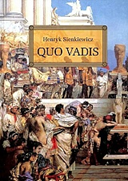 |
1. Quo Vadis
Henryk Sienkiewicz
(Create Space, 2013)
Promoting this amazing novel is one of my goals for the new year. Written by a Polish author in 1895—and the basis for his receiving the Nobel Prize for fiction a decade later—the plot is set in Nero’s Rome. Sienkiewicz tells the story of a Roman aristocrat who falls in love with a Germanic Christian princess. Historically accurate, beautifully written and brutal in its recall of Roman persecution of early Christians, Quo Vadis is deeply inspiring.
|
 |
2. The Black Count: Glory, Revolution, Betrayal, and the Real Count of Monte Cristo
Tim Reiss
(Broadway Books, 2013)
As a long-time fan of French novelist Alexandre Dumas, I was surprised to discover that his namesake, Dumas père, was equally famous in his generation. Born in (modern day) Haiti to a white French father and a black African mother, he arrived in Paris just in time for the French Revolution. Rising through the ranks, he became the equivalent of a four star general under Napoleon. Alas, revolutionary égalité was short-lived; racism abruptly returned to silence his brilliance. |
|
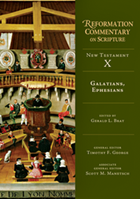 |
3. Reformation Commentary on Scripture Series
Acts
Esther Chung-Kim and Todd R. Hains (editors)
(InterVarsity Press, 2014)
Genesis
John Thompson (editor)
(InterVarsity Press, 2012)
I simply love this new series. Who knew that the writings of John Calvin, Martin Luther, John Donne and Menno Simons could still be so relevant today? Their reflections on many issues – ranging from the intersection of faith and culture to spiritual formation – are instructive for believers today. A great daily devotional read. |
|
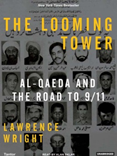 |
4. The Looming Tower: Al-Qaeda and the Road to 9/11
Lawrence Wright
(Vintage, 2007)
Anyone who loves international students will be both troubled and motivated by this book. An early chapter describes the life of an Egyptian graduate student named Sayyid Qutb at (what is now) Northern Colorado University. Rejecting the soft Christianity he observes, he returns to Egypt to become the ideological godfather of Al-Queda. And, as we know all too well, his progeny continue to spread his message of hate. |
|
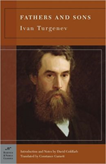 |
5. Fathers and Sons
Ivan Turgenev
(Oxford University Press, 2008)
Written in 1862, this great Russian novel tells the story of two sons and their fathers. By far, the most interesting character is Bazarov, a self-proclaimed nihilist who contends that he believes in nothing. Having absorbed the latest philosophy at the university in St. Petersburg, he discovers—tragically too late—why cynicism towards beauty, love and faith is a destructive illusion.
|
|
 |
6.Colossians and Philemon: Tyndale Commentaries
N.T. Wright
(InterVarsity Press, 2008)
For clarity, insight and pastoral care, Tom Wright simply can’t be beat. This short commentary on two of the Apostle Paul’s letters is written with the lay person in mind, but is also meaty enough to stimulate the scholar.
|
|
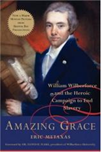 |
7. Amazing Grace: William Wilberforce and the Heroic Campaign to End Slavery
Eric Metaxas
(Harper, 2007)
Having thoroughly enjoyed Metaxas’ recent biography on Dietrich Bonhoeffer, I decided to ferret out one of his earlier works. And his account of Wilberforce—a Christian giant in human history—does not disappoint. Against powerful parliamentary foes, Wilberforce fights a multi-decade battle to end the British slave trade. Dramatically, shortly before his death, he succeeds.
|
|
 |
8. The House of Mirth
Edith Wharton
(Dover, 2002)
Lily Bart, the heroine of this 1905 novel is an intelligent and beautiful 29 year old. Tragically, her life is limited by the sexism and classism of the Gilded Age. Watching Lily tumble down the social later – through no fault of her own – is quite painful. The book’s title comes from Ecclesiastes 7:4: "The heart of the wise is in the house of mourning; but the heart of fools is in the house of mirth.” As always, Edith Wharton’s prose is remarkable.
|
|
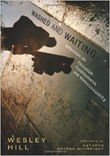 |
9. Washed and Waiting: Reflections on Christian Faithfulness and Homosexuality
Wesley Hill
(Zondervan, 2010)
Wesley Hill, now a professor of Biblical Studies at Trinity School for Ministry (Anglican), has become perhaps the leading spokesperson for same sex attracted believers who are committed to biblical fidelity, transparency and meaningful community. In this short book, he poignantly describes his own journey of struggle and faith. |
|
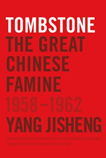 |
10. Tombstone: The Great Chinese Famine, 1958-1962
Yang Yishang
(Farrar, Straus and Giroux, 2013)
Did you know that an estimated 36 million Chinese died of starvation half a century ago? There was no drought, no flooding, no plague. Just rigid Marxist agricultural collectivization, a political system that lacked checks and a tightly controlled media. Not for the faint of heart, this highly documented book – written by a Communist party member - provides ample evidence that Mao knew of the unfolding tragedy but did nothing to alleviate the suffering. |
|
Honorable Mention
Managing Corporate Lifecycles: How Organizations Grow, Age and Die by Ichak Adizes
The Emperor of All Maladies: A Biography of Cancer by Siddhartha Mukherjee
The Coldest Winter: America and the Korean War by David Halberstam
Isaiah (InterVarsity Press Tyndale Series) by Alec Motyer
Resurrection by Leo Tolstoy
Visions of Vocation: Common Grace for the Common Good by Steve Garber
Lost in Shangri-La: A True Story of Survival, Adventure, and the Most Incredible Rescue Mission of World by Mitchell Zuckoff
1 Peter (InterVarsity Press New Testament Commentary Series) by Howard Marshall
Calvin Coolidge by Amity Shlaes
The Professor and the Madman: A Tale of Murder, Insanity, and the Making of the Oxford English Dictionary by Simon Winchester

Previous Years: